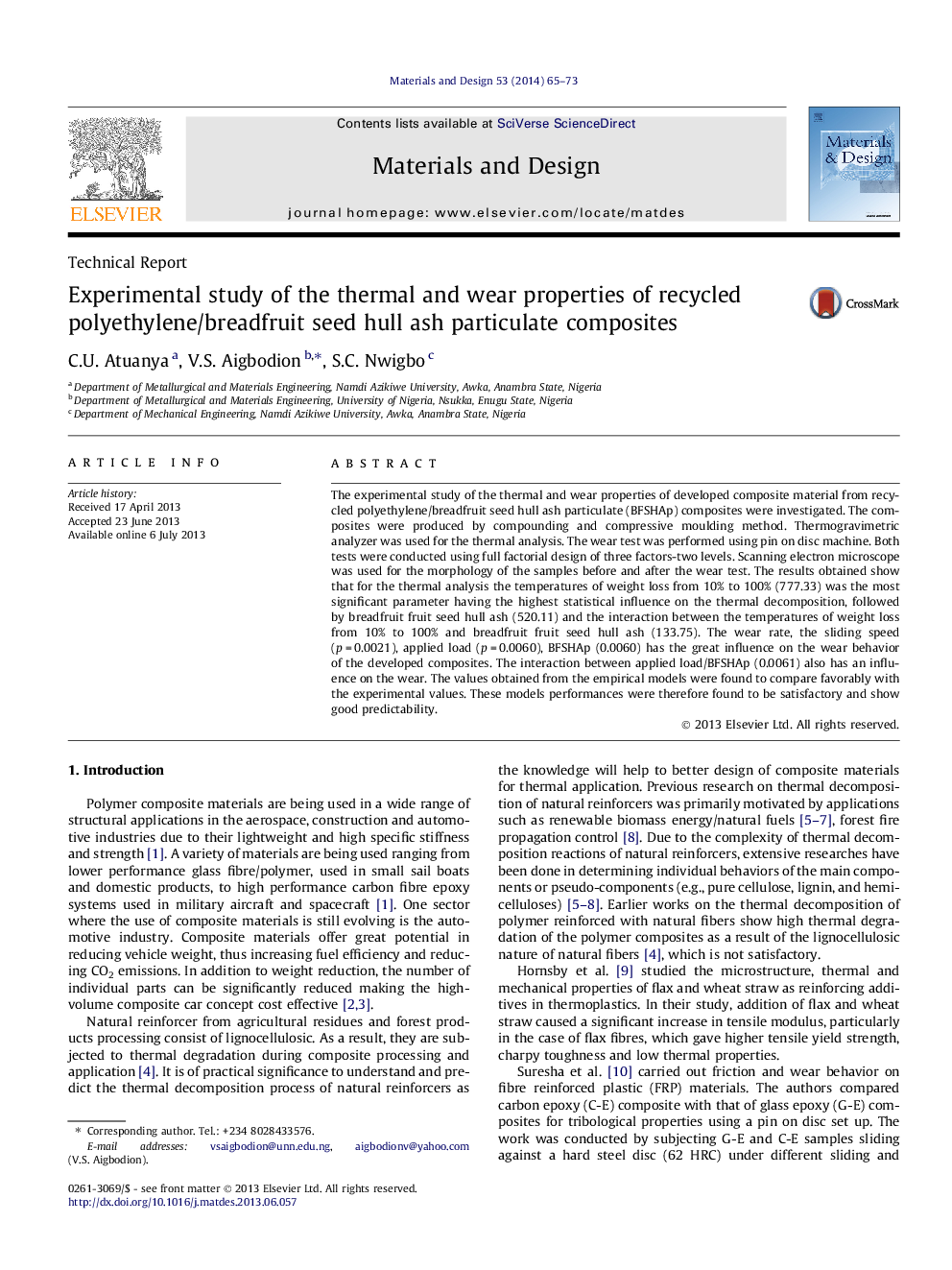| Article ID | Journal | Published Year | Pages | File Type |
|---|---|---|---|---|
| 829713 | Materials & Design (1980-2015) | 2014 | 9 Pages |
•The experimental study of the thermal and wear properties of composite material.•The composites were produced by compounding and compressive moulding.•The wear test was performed using pin on disc machine.•The values obtained from the empirical models were found to compare favorably.
The experimental study of the thermal and wear properties of developed composite material from recycled polyethylene/breadfruit seed hull ash particulate (BFSHAp) composites were investigated. The composites were produced by compounding and compressive moulding method. Thermogravimetric analyzer was used for the thermal analysis. The wear test was performed using pin on disc machine. Both tests were conducted using full factorial design of three factors-two levels. Scanning electron microscope was used for the morphology of the samples before and after the wear test. The results obtained show that for the thermal analysis the temperatures of weight loss from 10% to 100% (777.33) was the most significant parameter having the highest statistical influence on the thermal decomposition, followed by breadfruit fruit seed hull ash (520.11) and the interaction between the temperatures of weight loss from 10% to 100% and breadfruit fruit seed hull ash (133.75). The wear rate, the sliding speed (p = 0.0021), applied load (p = 0.0060), BFSHAp (0.0060) has the great influence on the wear behavior of the developed composites. The interaction between applied load/BFSHAp (0.0061) also has an influence on the wear. The values obtained from the empirical models were found to compare favorably with the experimental values. These models performances were therefore found to be satisfactory and show good predictability.
